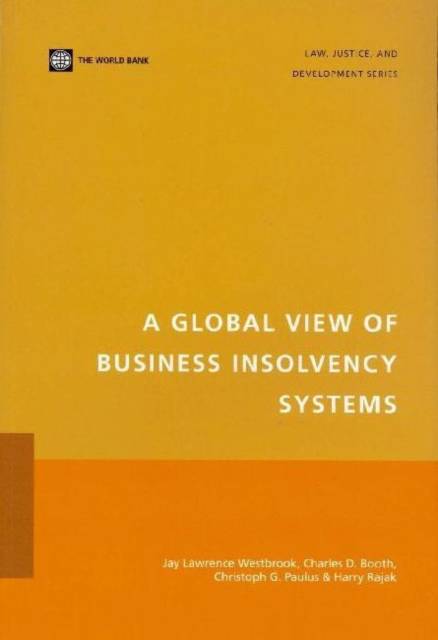
- Afhalen na 1 uur in een winkel met voorraad
- Gratis thuislevering in België vanaf € 30
- Ruim aanbod met 7 miljoen producten
- Afhalen na 1 uur in een winkel met voorraad
- Gratis thuislevering in België vanaf € 30
- Ruim aanbod met 7 miljoen producten
Zoeken
Omschrijving
The recent crises underscore the need for modern, sophisticated systems to govern the resolution of business distress, in order to maximize value in the distressed estate and to protect economic institutions. This work analyses how legal systems around the world respond to the general default of business debtors. Inspired by the approach enshrined in the World Bank's Principles for Effective Insolvency and Creditor Rights Systems, it emphasizes the close inter-relationship among various elements of an insolvency regime, examining them not so much as sets of discrete rules as system-wide attempts to reconcile competing policy goals. It posits that any insolvency law pursues the goals of transparency, predictability, and efficiency, while at the same time seeking to address issues of fairness and social justice. Within this framework, the authors examine the principal international approaches to pre-distress debt collection and security enforcement; liquidation and reorganization of distressed businesses; out-of-court workouts; the institutions entrusted with the conduct of such proceedings, including courts, official administrators, and private trustees; the position of the employees of distressed businesses; and cross-border insolvency. Without being prescriptive, the authors set out the costs and benefits of settling the myriad policy questions in these domains one way or another. This book would be of interest to legal and international policy-makers, academics and advanced students, courts and practitioners dealing with domestic and cross-border insolvency, and anyone seeking to understand or reform insolvency systems.
Specificaties
Betrokkenen
- Auteur(s):
- Uitgeverij:
Inhoud
- Aantal bladzijden:
- 318
- Taal:
- Engels
- Reeks:
Eigenschappen
- Productcode (EAN):
- 9780821382615
- Verschijningsdatum:
- 5/01/2010
- Uitvoering:
- Paperback
- Formaat:
- Trade paperback (VS)
- Afmetingen:
- 160 mm x 239 mm
- Gewicht:
- 521 g

Alleen bij Standaard Boekhandel
+ 89 punten op je klantenkaart van Standaard Boekhandel
Beoordelingen
We publiceren alleen reviews die voldoen aan de voorwaarden voor reviews. Bekijk onze voorwaarden voor reviews.











